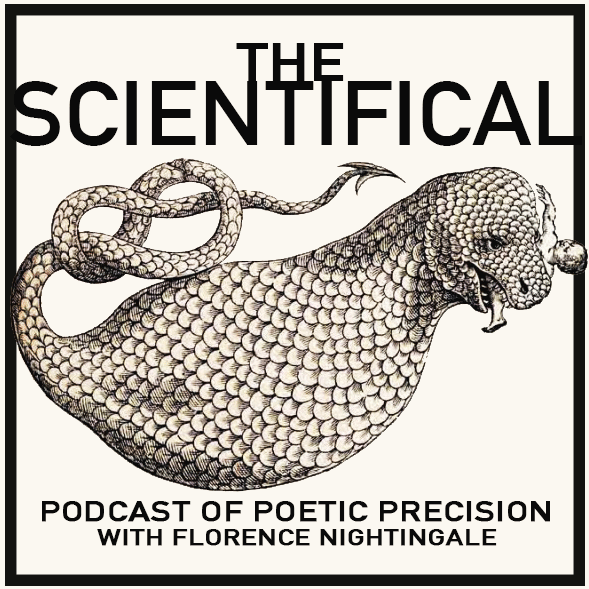
The Latest Episode
A Treatise on Silting the Grounds for Poems
Silting. The name of this practice stands
sufficiently familiar to us, though the particulars of practice
less so. Silting for poems (not to be confused with
tilling, a topic which we’ll discuss later),
We have heard,
requires a few of the following:
a Peter Pan,
an echo,
a long handled fork,
a pitchfork,
an electrical grounding
To what shall we liken the practice of the poem silting, or
to what shall we compare it?
It resembles
pushing birds through sieves, or
it reminds of
sifting shiny sand.
Thus an experience of the world,
taken in hand,
is shoved through a collection of tiny holes
and then
purposefully reassembled
from paste. This matter reconstruction
we call, as with which you are familiar, the poem.
We can thus, for this treatise,
settle on the definition of a poem as
the holed then wholed experience.
The poem is the final product of this experience
not to be confused with
the experience itself.
We do now turn our attention to
silting, which we will now admit
is not a word, a point which we will now
admittedly ignore
and continue. Silting
sits as language to describe the transitive process
in which one engages
when carrying a collection of world experiences
from their raw experience states
to a poem state, i.e.
the experience itself mentioned
above. Imagine
if you will—
It has been brought to our attention that
silting, in fact, is a word,
stemming from the verb silt, which is,
as defined by our dictionary of reference
the office intern,
which is, as defined by our reference,
“to become filled or blocked with sand,”
From “silt,” we thus easily
extrapolate the gerund
“silting.”
This commoners’ definition poses an
infringement on our treatise purpose.
We will briefly note that when “silting”
is used in a sentence poetically
its meaning shifts away from
this accumulating connotation
the word has gathered from the rusty
English language
towards, well
what we continue here to define.
Imagine if you will
that you have gathered your days’ experiences
into a sieve. Each experience has been measured
for you
to place with precision
into your sieve
as a cup of dirt. For example, after
you enjoyed your morning meal
of yogurt with honey with your husband, and
discussed, for example,
impending logistics of divorce,
you received—you need not worry
about the source—you received
a cup of dirt to pour
into your sieve.
As you proceeded throughout your day,
you gathered similar cups of soil
and placed them in your sieve.
Thus, it follows, that you have
reached the close of your day,
and, as many men and women do desire,
aspire to draw a poem,
also known as a poetical experience,
from the day’s conducted events.
And here we have the crux of the matter:
silting, as used in a poetical context,
refers to the process of shaking
your day’s experiences, the dirt,
through the sieve. Through the process of,
in a poetical context,
silting, select elements of the day’s
experiences pass through the sieve and
accrue—perhaps it is the same word after all—
accrue into poems. Thus from the day’s dirt
shakes out and gathers
a silted poem.
